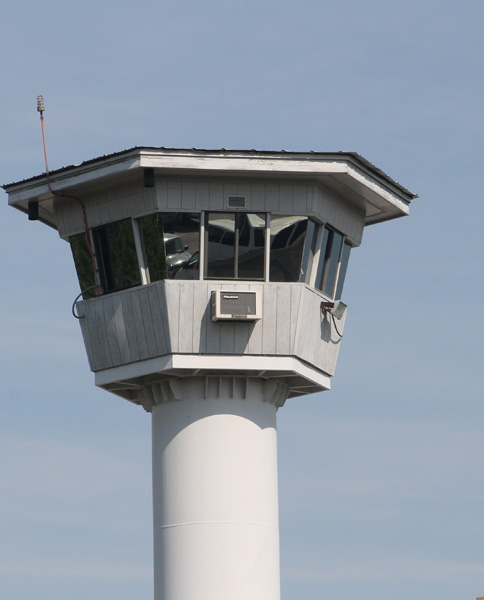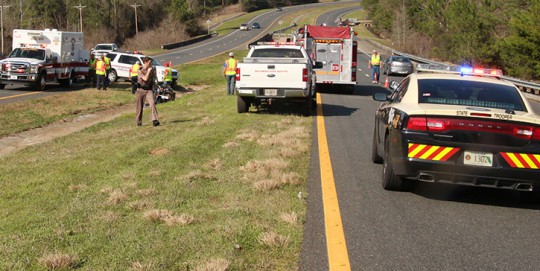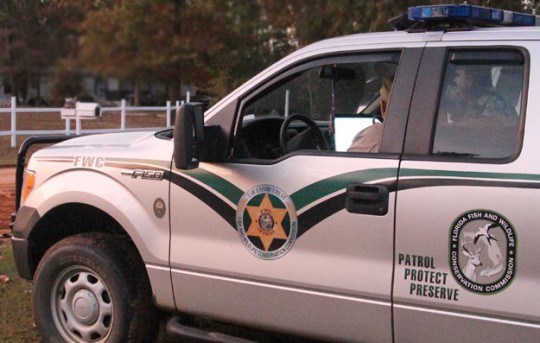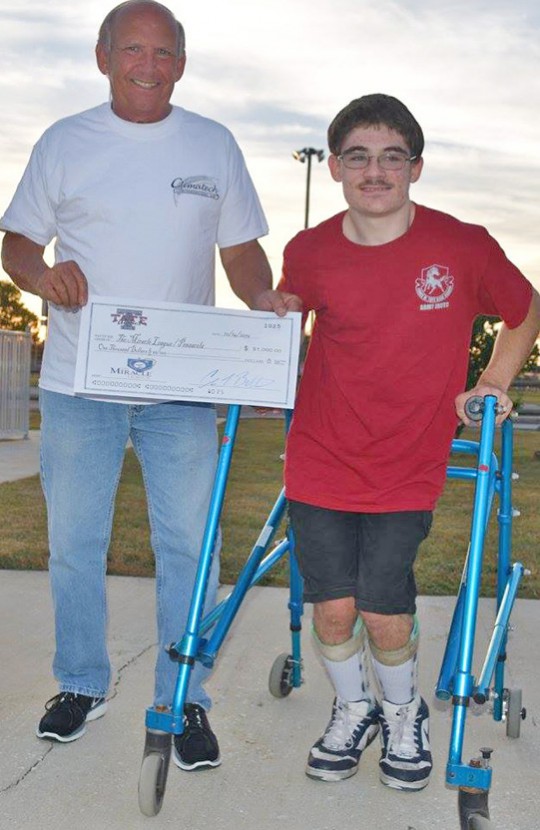Sunny, Upper 80’s Today
October 17, 2016
Here is your official North Escambia area forecast:
Monday: Mostly sunny, with a high near 88. Calm wind becoming southeast around 5 mph in the morning.
Monday Night: Mostly clear, with a low around 64. Southeast wind around 5 mph becoming calm.
Tuesday: Sunny, with a high near 87. Calm wind becoming southeast around 5 mph in the morning.
Tuesday Night: Mostly clear, with a low around 63. South wind around 5 mph becoming calm.
Wednesday: Sunny, with a high near 87. Calm wind becoming east around 5 mph.
Wednesday Night: Mostly clear, with a low around 64. Calm wind.
Thursday: Mostly sunny, with a high near 86. Calm wind.
Thursday Night: A 30 percent chance of showers and thunderstorms. Mostly cloudy, with a low around 60. West wind around 5 mph.
Friday: A 20 percent chance of showers and thunderstorms. Mostly sunny, with a high near 76.
Friday Night: Mostly clear, with a low around 50.
Saturday: Sunny, with a high near 75.
Saturday Night: Mostly clear, with a low around 50.
Sunday: Sunny, with a high near 78.
Highway 29, Three Other Escambia Roads, Among The Deadliest In America
October 17, 2016
A new study says that four of the deadliest highways in the country run through Escambia County.
The study looked at the total length of each highway nationwide and the number of fatalities that occurred per 100 miles between 2011 and 2015. The group found that I-10 ranked as the fourth deadliest in the country with nearly 55 deaths per 100 miles from Florida to California.
Highway 90 ranked 29th with about 21 deaths per 100 miles, and Highway 98 was in the 31st spot with 20 deaths per 100 miles.
Highway 29, the only ranked highway to run through the immediate North Escambia area, ranked as the 35th deadliest highway in America with 14.5 deaths per 100 miles.
The study was conduced by the personal finance research group ValuePenguin, which ranked the 50 deadliest roads in the country.
Pictured: the scene of a 2015 fatal crash on Highway 29 in McDavid which claimed the life of north Alabama man. NorthEscambia.com file photo, click to enlarge.
FWC Law Enforcement Report
October 17, 2016
The Florida FWC Division of Law Enforcement reported the following activity during the weekly period ending October 13 in Escambia and Santa Rosa counties.
ESCAMBIA COUNTY
Lieutenant Hahr was patrolling in the Escambia River Wildlife Management Area (WMA) at Cotton Lake campground when he observed a couple sharing a pipe as they smoked cannabis. Both were charged with possession of not more than 20 grams of cannabis and possession of drug paraphernalia.
While on board the Offshore Patrol Vessel Fincat, Officers Cushing, Pettey and Tolbert patrolled federal waters of the Gulf of Mexico over the weekend. They boarded numerous vessels and found violations for failure to allow inspection, possession of red snapper during closed season, possession of gray triggerfish during closed season, and no federal reef fish charter permit. The appropriate citations and warnings were issued.
SANTA ROSA COUNTY
Officers Jernigan and Lewis, alongside FWC biologists, worked a public outreach event at the Munson Heritage Festival. More than 2,000 people visited FWC’s booth. The officers discussed FWC-related topics with hundreds of visitors.
This report represents some events the FWC handled over the past week; however, it does not include all actions taken by the Division of Law Enforcement. Information provided by FWC.
Markus Baxley, Aggie Nation Present $1,000 To Miracle League
October 17, 2016
When Tate High arranged for a Markus Baxley, who has cerebral palsy, to score a touchdown in the Aggies game against Pace, the Aggie Nation also collected funds for Markus’ favorite charity.
Markus recently presented a $1,000 check from the Aggie Nation to the Miracle League of Pensacola.
To read more about Markus and his big touchdown, click here.
NorthEscambia.com photo by Kristi Barbour, click to enlarge.
Impact 100 Awards $108,000 Each To 10 Charities
October 17, 2016
IMPACT 100 Pensacola Bay Area, a local women’s philanthropy group, awarded 10 grants Sunday worth $108,200 each to community groups.
The group has awarded over $8.3 million to nonprofits in Escambia and Santa Rosa counties since 2004.
Each of the following organizations was awarded $108,200 Sunday after a thorough grant review, committee process and membership vote:
ARTS & CULTURE
The Santa Rosa County Creek Indian Tribe, Inc.
Project: Native American Cultural Center
St. John’s Cemetery Historical and Educational Foundation, Inc.
Project: The OUTDOOR MUSEUM at St. John’s Historic Cemetery
EDUCATION
The Arc Gateway, Inc.
Project: Jeff’s Corner Garden at The Arc Gateway
Milk and Honey Outreach Ministries, Inc.
Project: Building Precious GEMS
ENVIRONMENT, RECREATION & PRESERVATION
Greater Pensacola Junior Golf Association, Inc. (The First Tee of Northwest Florida)
Project: Golf and Life Skills Training Facility
Northwest Florida Marine Education and Discovery of Gulf Ecosystems, Inc. (Navarre Beach Marine Science Station)
Project: Coastal Conservation Corp
FAMILY
Manna Food Bank, Inc. (Manna Food Pantries/MANNA)
Project: Fighting Hunger – Better, Faster, Stronger!
Studer Community Institute, Inc.
Project: IMPACT Brain Bags
HEALTH & WELLNESS
Escambia Search and Rescue Dive Team, Inc.
Project: Sea, Air and Land Capabilities Improvement Initiative
PACE Center for Girls (Escambia/Santa Rosa), Inc.
Project: Go Reach
Inmate Re-Entry Facilities Fight Funding Changes
October 17, 2016
Advocates for inmate re-entry facilities said a Florida Department of Corrections plan to change the way work-release and substance-abuse programs are funded violates state law and may increase rates of recidivism.
Re-entry contractors led by Bridges of America — which provides services in some major cities and has an Orlando contract set to expire Dec. 31 — told reporters the Department of Corrections is running afoul of a requirement that substantial changes in corrections funding are subject to legislative and executive-branch review. The contractors said the changes would reallocate funds from facilities like theirs to programs inside prisons.
 Lori Costantino-Brown, president of Bridges of America, said the Department of Corrections notified her organization in July that its state contract would be rebid through a process known as a request for proposals. The department then gave Bridges of America a three-month extension on an existing contract while preparing for the procurement process.
Lori Costantino-Brown, president of Bridges of America, said the Department of Corrections notified her organization in July that its state contract would be rebid through a process known as a request for proposals. The department then gave Bridges of America a three-month extension on an existing contract while preparing for the procurement process.
Constantino-Brown said the procurement proposal was “different from anything they had put out in the past,” including geographical caveats and facility requirements she called “suspicious.” Bridges of America has filed a formal protest to the request for proposals.
But Department of Corrections officials, including Secretary Julie Jones, have disputed the allegations.
“They’re welcome to bid on the proposal,” department spokeswoman Michelle Glady said. “If they did, it may change things for them. That would be the decision they have to make. They’re a business. They’re currently protesting it — that has to be resolved before we move forward with this process.”
The department and Bridges of America reached an agreement in May that allowed Bridges to continue operating facilities in Broward and Manatee counties, albeit under altered conditions and subject to termination by the department after two years. Both contracts include three one-year renewal options.
“Today, more than 60 percent of the department’s substance use disorder budget is dedicated to treating only a small number of individuals,” Jones said in a September memo. “We know we can do better. We want to provide more services to treat an even greater number of individuals with the same resources.”
Department officials say their plan would provide services to more prisoners with the same funding levels, while re-entry facility representatives claim the state’s plan focuses simply on “filling prison slots,” increasing the volume of prisoners served but with diminished effectiveness.
Some groups, such as Florida TaxWatch, have backed the re-entry facilities, arguing the department plan would increase inmate recidivism.
by Ryan Ray, The News Service of Florida
Florida Supreme Court Requires Unanimous Juries In Death Sentences
October 17, 2016
The Florida Supreme Court on Friday ruled that jury recommendations must be unanimous for the death penalty to be imposed, delivering a blow to prosecutors and the Legislature by striking down a new law aimed at fixing the state’s death penalty scheme.
 Friday’s 5-2 ruling came in the case of Timothy Lee Hurst, whose appeal spawned a U.S. Supreme Court decision in January that found Florida’s death-penalty sentencing process was unconstitutional because it gave too much power to judges, instead of juries.
Friday’s 5-2 ruling came in the case of Timothy Lee Hurst, whose appeal spawned a U.S. Supreme Court decision in January that found Florida’s death-penalty sentencing process was unconstitutional because it gave too much power to judges, instead of juries.
The Florida court on Friday ordered that Hurst be given a new sentencing hearing and also left the state’s death-penalty sentencing structure in doubt, for the second time in a year.
The immediate impact of Friday’s decision on Florida’s 400 Death Row inmates was unclear, but the 89-page ruling left undisputed that unanimous jury recommendations are required for defendants to be ordered to death, in contrast with a hurriedly crafted law passed in March.
“We are reviewing the Florida Supreme Court ruling, but in the meantime Florida juries must make unanimous decisions in capital cases as to the appropriateness of the death penalty,” Attorney General Pam Bondi’s spokesman, Whitney Ray, said in an email Friday.
Bondi’s office has not ruled out the possibility of seeking a rehearing from the court, something unlikely to be granted, given the 5-2 ruling.
This issues in the Hurst case deal with the sentencing process after juries unanimously find defendants guilty of capital offenses.
Under Florida’s old law, jurors by a simple majority could recommend the death penalty. Judges would then make findings of fact that “sufficient” aggravating factors, not outweighed by mitigating circumstances, existed for the death sentence to be imposed.
That system was an unconstitutional violation of the Sixth Amendment right to trial by jury, the U.S. Supreme Court decided in an 8-1 ruling in January in a case known as Hurst v. Florida.
After the Hurst ruling, the Florida Supreme Court indefinitely halted two scheduled executions, and the Legislature quickly passed a new law to address the U.S. Supreme Court decision.
Under the new law, juries have to unanimously find that at least one aggravating circumstance exists in order for defendants to be eligible for the death penalty. The law also requires juries to weigh whether sufficient mitigating factors exist to outweigh the aggravating circumstances, but the law is silent about whether those decisions must be unanimous. The law also required at least 10 jurors to recommend the death penalty, a departure from the old law, which required a simple majority.
The issue of a unanimous recommendations — not directly addressed in the U.S. Supreme Court decision — was a flashpoint for lawmakers, prosecutors and defense lawyers during legislative debate on the new law. While the state Senate initially wanted to adopt a requirement of unanimous jury recommendations, lawmakers later struck a deal, pushed by state attorneys, to require at least 10 jurors to recommend death.
But in Friday’s highly anticipated decision, the Florida Supreme Court majority found that the state’s attempt to repair the death-penalty sentencing structure remained flawed.
Chief Justice Jorge Labarga and justices Barbara Pariente, R. Fred Lewis and Peggy Quince agreed fully in the majority opinion. Justice James E.C. Perry concurred with the issue of requiring unanimous jury recommendations but dissented on another issue. Justices Charles Canady wrote a dissenting opinion that was joined by Justice Ricky Polston.
The U.S. Supreme Court decision mandated that all findings necessary for imposition of a death sentence are “elements” that must be decided by a jury, and Florida “has a longstanding history of requiring unanimous jury verdicts as the elements of a crime,” the majority wrote.
“… We conclude that under the commandments of Hurst v. Florida, Florida’s constitutional right to trial by jury, and our Florida jurisprudence, the penalty phase jury must be unanimous in making the critical findings and recommendation that are necessary before a sentence of death may be considered by the judge or imposed,” the majority wrote.
Of 31 states that have the death penalty, Florida is one of just three — along with Alabama and Delaware — that have not required unanimous recommendations for sentences of death.
“Simply put, Florida’s extreme outlier status in not requiring unanimity in the jury’s final recommendation renders the current imposition of the death penalty in Florida cruel and unusual under the Eighth Amendment of the United States Constitution,” Justice Barbara Pariente wrote in a concurring opinion.
Resolving the issue “now, as opposed to later, ensures that, for as long as death is a permissible punishment in the United States, Florida’s death penalty will be constitutionally sound,” Pariente wrote.
But in his dissent, Canady objected that the majority’s decision regarding unanimity went far beyond the bounds of the U.S. Supreme Court’s ruling in the Hurst case, saying it “fundamentally misapprehends and misuses” the decision, “unnecessarily disrupting” the administration of the death penalty in Florida.
Hurst was sentenced to death for the 1998 killing of fast-food worker Cynthia Harrison in Pensacola. Harrison, an assistant manager at a Popeye’s Fried Chicken restaurant on Nine Mile Road where Hurst worked, was bound, gagged and stabbed more than 60 times. Her body was found in a freezer.
The jury in the Hurst case recommended a death sentence to the judge, but its vote was split seven to five.
Friday’s decision was a “major shift in Florida jurisprudence,” according to 2nd Judicial Circuit Public Defender Nancy Daniels, whose office represents Hurst.
“The Hurst opinion from today makes it clear that the whole job a jury has to do has to be unanimous,” she said in a telephone interview.
State attorneys will hold a telephone conference on Monday to review the court opinion and assess how to proceed, Florida Prosecuting Attorneys Association lobbyist Buddy Jacobs said Friday.
Friday’s ruling could deepen the rift between the left-leaning court and the Republican-dominated Legislature, which will be forced to address the thorny death-penalty issue again during next year’s session.
Incoming House Speaker Richard Corcoran, who will take over after the November elections, called the state court’s Hurst decision “antithetical to the rule of law” and “dangerous for our state.”
“With no regard to the Legislature’s constitutional duty to establish policy in this state, the Florida Supreme Court expanded the scope of its decision to issues that were not raised by the parties or considered by the U.S. Supreme Court,” Corcoran, a Republican lawyer from Land O’ Lakes, said.
Florida lawmakers will have to address the issue when they reconvene, said Pete Mills, an assistant public defender in the 10th Judicial Circuit who is chairman of the Florida Public Defender Association’s death penalty steering committee.
“We are a nation of laws. We do not make things up as we go along. This was a statute. The statute has been found unconstitutional. To proceed with a statute that is unconstitutional is unwise and will lead to further chaos,” Mills said. “We have been telling the courts and the Legislature that these statutes were unconstitutional for over 15 years. They didn’t listen to us. They should listen to us now. They should have listened to us all along.”
by Dara Kam, The News Service of Florida
Check Out Mo The Lion In Molino And Storytime At A Library Near You
October 17, 2016
 The West Florida Public Library now has its very own lion, Mo.
The West Florida Public Library now has its very own lion, Mo.
Mo will be joining the Molino Branch Library’s storytime each Wednesday at 10:30 a.m. to help sing songs and read books.
Storytime — with stories, songs and movement activities designed to build future readers — is held at all branch libraries as follows:
Molino Branch
Weekly on Wednesdays at 10:30 a.m.
(No Winter Break)
Century Branch
Weekly on Thursdays at 4 p.m.
(*Winter Break Dec 12 through Jan 17)
Pensacola Library
Weekly on Wednesdays at 10:30 a.m.
(*Winter Break Dec 12 through Jan 17)
Southwest Branch
Weekly on Tuesdays at 10:30 a.m.
(*Winter Break Dec 12 through Jan 17)
Tryon Branch
Mommy & Me: Weekly on Tuesdays at 10:30 a.m.
Mommy & Me is a lapsit program for babies and their special someone.
Preschool Story Time: Weekly on Thursdays at 10:30 a.m.
(*Winter Break Dec 12 through Jan 17)
Westside Branch
Weekly on Thursdays at 11:30 a.m.
(No Winter Break)
Joe Edward Philyaw
October 17, 2016
Joe Edward Philyaw, 62, of Atmore, AL, passed away peacefully with his loving dog, Sir Dink, wife, Teena Raye Merrill Philyaw, and best friend, Marion McGhee on Wednesday, October 12, 2016, in Atmore. He was a truck driver. He was born in Atmore on May 3, 1954, to the late Joe and Olean Agnes Rayborn Philyaw, Jr. He was employed with Harold Allen Mobile Homes for 15 years, and then with Billy Barnes Enterprises for 20 years before his illness.
He is preceded in death by two half siblings, Tommy Philyaw and Grace Philyaw.
Survivors include his wife, Teena Rae Merrill Philyaw of Atmore; three sons, James B. Philyaw of New Jersey, Darrell Philyaw and Trent Philyaw both of Waynesboro, MS; two brothers, Daniel Philyaw and Alvin Philyaw; half-brother, William Philyaw; and seven grandchildren.
Services were held Monday, October 17, 2016, at Grace Fellowship Church with Bro. Gene King and Bro. Glen Weber officiating.
Interment was in Oak Hill Cemetery.
Active pallbearers were Odell McGhee, Marion McGhee, Ronnie Rolin, Dempsey Rolin, Ronald Rolin, and Luke Andrews.
Johnson-Quimby Funeral Home is in charge of arrangements.
Leslie Ray Hall
October 17, 2016
Leslie Ray Hall, age 78, died Saturday, October 15, 2016, in Davisville, FL. He was a native of Atmore, and a long time resident of Davisville. He was retired from Escambia County Florida Road Department. He was a Mason, and a founding member of the Atmore Saddle Club.
He was preceded in death by his wife, Annie Ruth Kimmons Hall; father, Leslie L. Hall; mother, Gwendolyn Albritton Irwin; step-father, Harold Irwin; and brother Larry Ricky Irwin.
He is survived by his daughter, Shannon Hall Jones and son-in-law, Thomas Jones, and extended family.
Graveside services were held Monday, October 17, 2016 at the Sullivan Cemetery with Reverend C. L. Langford officiating.
Burial will follow at Old Sullivan Cemetery in Nokomis, AL.
In lieu of flowers, donations can be made to the Sullivan Cemetery Fund.
Petty-Eastside Chapel Funeral Homes is in charge of all arrangements.









